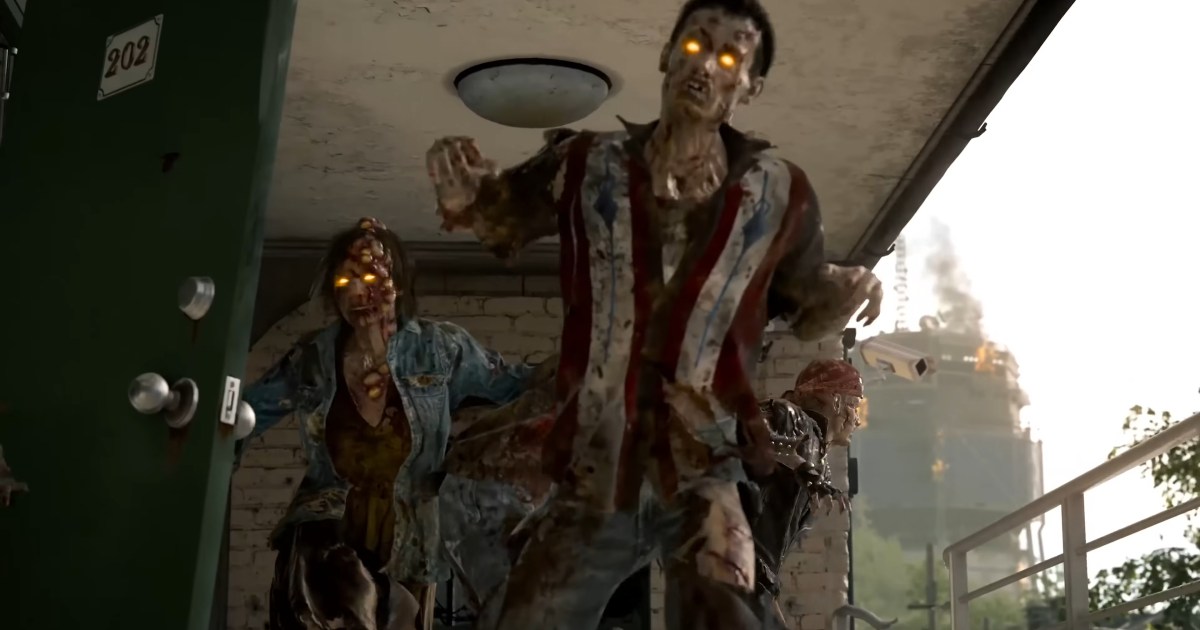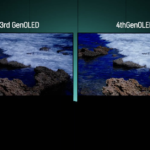There are two kinds of people in this world: those who play Call of Duty and those who don’t. For three glorious hours, I was finally part of the former. Then it all came crashing down in a hail of gunfire.
Call of Duty: Black Ops 6 is out now and it’s being hailed as a return to greatness for the struggling series. Critics have praised features like its game-changing Omnimovement and welcomed the return of round-based Zombies mode. The star attraction, though, is this installment’s campaign. After years of experimental failures, Black Ops 6 delivers a straightforward political thriller full of eclectic missions. It’s a great premise, one that allows developer Raven to goof around with a “gone rogue” story featuring characters like Russel Adler.
All of that makes for a thrilling first few missions that are easy to love for the popcorn blockbuster they are. But the story quickly takes a thoughtless turning point when the gang ships off to Iraq and it creates another uncomfortable moment for a series full of them.
Stay trashy
For its first few missions, Black Ops 6 is a thrill. It opens in the middle of a generic military shootout, but that’s just a loud introduction to its more playful setup. After getting too close to a shadowy group dubbed Pantheon, a small group of agents is cast out of the CIA and forced to go rogue. It’s a confidently cheesy setup that allows characters like Frank Woods and Troy Marshall to set out on a globe-trotting adventure that hops from set piece to set piece.
Black Ops 6 is at its best when it’s at its dumbest — and I mean that as a compliment. Its best mission, Most Wanted, sends the player, disguised as a photographer, to a gala for then Sen. Bill Clinton. The goal is to gather intel on a secret black site underneath the event. Rather than just giving players a gun and sending them off, it begins with a bit of espionage as players sneak into coat check rooms to steal information and intimidate shady senators. It almost plays like Call of Duty’s take on Hitman, as there are a few ways to move forward.
Things only get gloriously silly from there. In my own playthrough, I smashed a guy’s face into a deep fryer like I was Jason Statham. Once I actually found the black site, my crew and I engaged in a series of hig- octane shootout through rooms filled with computers and framed pictures of politicians. It all culminates in the cheesiest moment possible: We escape by stealing a pair of motorcycles with American flags painted on them and gun our way through a chase scene.
More than any Call of Duty mission I’ve ever played, Most Wanted understands the shooter’s strengths. Its best missions feel like they were ripped out of Jack Reacher. Have you ever had the experience of watching some mid-tier thriller on FX with your uncle during Thanksgiving? Or having your dad tell you about some dumb action movie he watched on Tubi for free? How this series was once heralded as the pinnacle of video game storytelling is beyond me; it’s tasty Hollywood trash that works best when it doesn’t take itself too seriously.
But the problem with using real-world conflicts and historical figures as a backdrop to all that goofiness is that it has to be handled sensitively … and Black Ops 6 is very much not interested in that.
Send in the zombies
Immediately following Most Wanted, the team is sent off to Iraq. The narrative reasons for that are flimsy, because the story isn’t really interested in cohesion. It just exists as a way to link fun ideas together. Now, I’m dropped into a small open world dotted with objectives. The main goal is to destroy some weapons so I can storm Saddam Hussein’s palace, but I can complete some optional objectives to make the assault easier. As far as mission design goes, it’s a perfectly sound idea that gives me lots of room to experiment with how I handle objectives.
It also leans into the worst parts of Call of Duty. As I have in so many video games, I’m once again shooting waves of Middle Easterners whose bodies pump out pink mist. It’s not much of a surprise; missions like this are par for the course in modern American war media. All you can really do is roll your eyes and hope that the story moves on to a better set piece afterwards.
And it does. The next mission is Emergence, and it’s the certified “WTF” moment of the campaign. The team storms a secret Pantheon site in Kentucky, but gets split up due to a broken elevator. My character is separated from the team and the gas mask is shattered in the process. Hallucinations set in and suddenly I’m fighting hordes of zombies. It’s a campy mission, one where I’m collecting keycards like I’m in a Doom game and zipping around with a grappling hook. It should be a great moment, but its placement could not be worse.

Try as I did to “turn my brain off,” I just couldn’t set aside the fact that I’d just gone from shooting Iraqis to killing goofy monsters. Both operate in hordes. When a soldier sees me sneaking into an Iraqi base, they have the tendency to flank around me, coming at me from all sides. It’s not terribly different from the way Black Ops’ zombies operate; both are treated like hordes to be gunned down. Middle Easterners have always been in Call of Duty’s crosshairs, just as they have in so much American media post-9/11, but Black Ops 6 takes that to a new low. By throwing those missions back-to-back, the campaign dehumanizes its Iraqis. They are treated like interchangeable targets that can be swapped out for cartoon monsters on a whim.
For casual players, I imagine this is the kind of moment that can be written off with a tried-and-true “it’s not that deep” defense. I’m sure Raven itself hasn’t thought much about what it might be inadvertently saying here either. As fun as Black Ops 6’s campaign is, it’s also a thoughtless hodgepodge of schtick missions pulled from other games. It’s a greatest hits collection, which is why it’s so easy to hail as a return to form without giving its “head-empty” story much thought.
But Call of Duty doesn’t have the luxury of being thoughtless. It’s a fictional series, but one that deals with very real historical events and figures. Operation Desert Storm isn’t an invented conflict. Clinton isn’t a fake politician. These aren’t chess pieces; every snippet of reality threaded into the fiction carries its own real baggage. That’s something that the critically beloved Top Gun: Maverick understood so well when it built its uranium plant mission around a country that never goes named. Are they Russian? Heck, maybe they’re Canadian. Who knows! All that matters is that it doesn’t have to fly through a minefield of political implications.

Black Ops 6, on the other hand, is difficult to divorce from a context of its own creation. It’s launching amid a heated conflict in the Middle East, as Israel’s war on Gaza continues to claim countless lives. What side you stand on is irrelevant; what’s important is that you don’t become desensitized to the violence and dehumanize the victims of the bloodshed as a result. What message does it send to players, as subconscious as it may be, when Call of Duty shows you that there’s little difference between shooting a Middle Easterner and a zombie? Even if you’re someone who fancies yourself smart enough to know the difference between fiction and reality, that imagery still risks planting a seed that can be watered by similar media in Call of Duty’s orbit. It does not exist in a vacuum, as much as Activision may want it to.
What’s frustrating about it all is that it’s an unforced error. The Iraq mission feels entirely random within what’s an otherwise delightfully silly campaign. The whole appeal of the story is that Woods’ team has no connection to the CIA anymore. They’re a rogue group chasing a made-up organization using makeshift MacGyver gadgets. Why would we be storming Hussein’s palace at all, even within the fiction? Even with a loose explanation, Raven never makes a sensible case for that; it’s more concerned with creating bombastic moments than telling a story. War becomes a carnival and all of its villains are water balloons in a shooting gallery.
If you truly can turn your brain off, more power to you. But I don’t have the stomach for this ride.
Read the full article here














